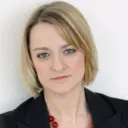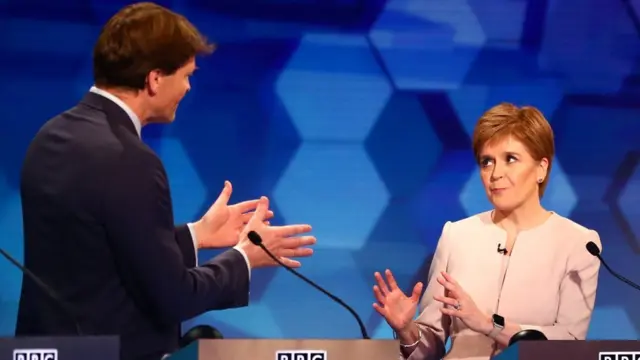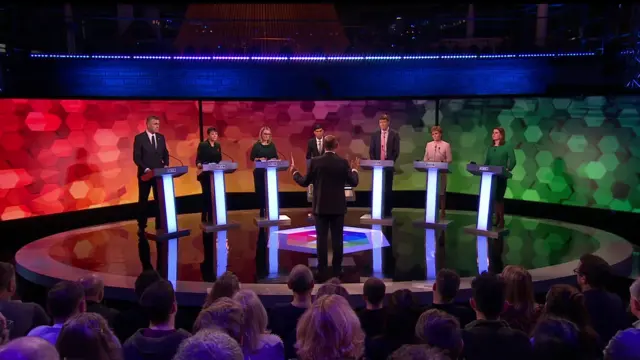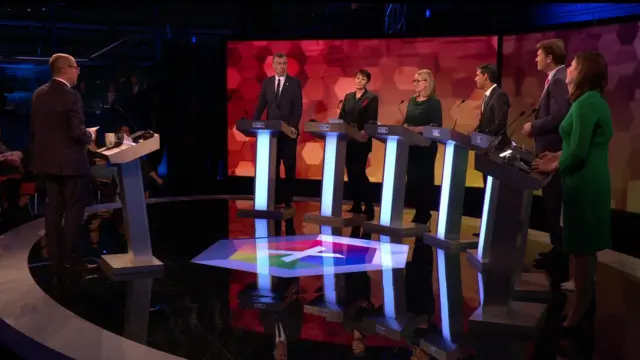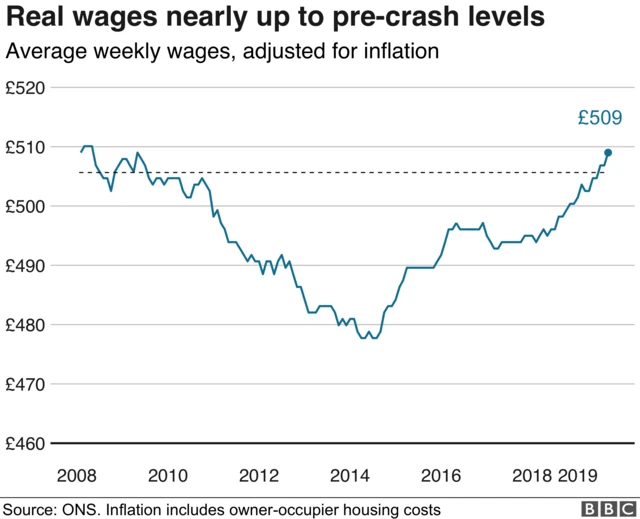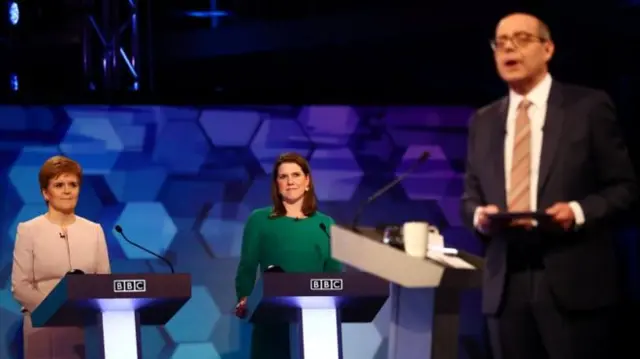Latest headlines: What happened today?published at 22:30 GMT 29 November 2019
And that's a wrap...
We are ending today's live election coverage here. Thanks for joining us.
Before we go, a reminder of the main headlines:
- Today's main story is the terror attack in London Bridge, which saw two members of the public killed and another three people injured. Prime Minister Boris Johnson has been chairing a meeting of the government's emergency committee, Cobra, following the incident
- The Conservatives, Labour and the Liberal Democrats have suspended election campaign events in the capital this evening in response
- Meanwhile, leaders and senior figures from seven major political parties took part in a live TV debate on the BBC, sharing their plans to tackle security issues and clashing over Brexit, the economy, immigration and the NHS
- Labour accused Boris Johnson of "running scared" of an interview with the BBC's Andrew Neil after refusing to confirm a date. Labour leader Jeremy Corbyn and the SNP's Nicola Sturgeon have faced half-hour long interrogations
- The Conservatives announced they would bring in a state aid regime after Brexit which would help struggling firms and bring in "buy British" guidelines for public bodies
- And the Scottish Lib Dems unveiled their manifesto while at a curling rink in Edinburgh. It includes pledges to end fuel poverty in Scotland by 2025, ensure mental health is tackled with the same urgency as physical health and give every child 35 hours a week of free care from nine months old to when they start school
